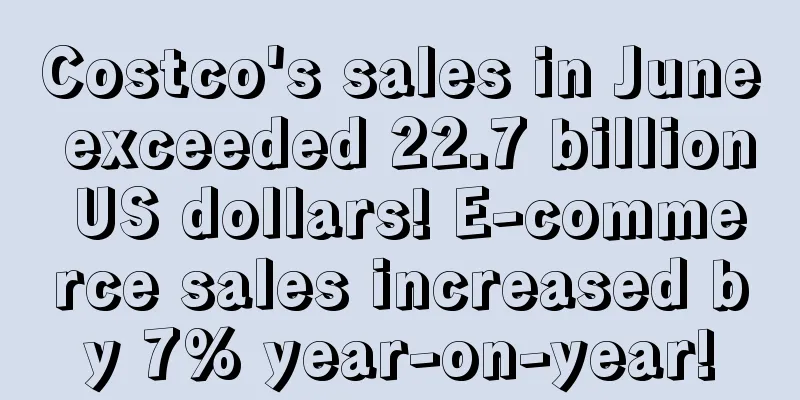"After being laid off by a large company, I turned the tide overseas"

|
"I want to talk about the project again... Is there a market for this product? Can it be successful? If we want to make a similar social software in China now, it should be completely hopeless." As the interview was coming to an end, Wu Haoran decided to ask the question that bothered him the most in the most straightforward way. “You can look at our growth over the past few years,” the interviewer answered frankly. After seeing the numbers, Wu Haoran relaxed. "For me, this is a refreshing change. I have never done overseas business before, but this time I realized how strong the paying ability of overseas users is, and that the competition there is not as fierce as in China." Now, Wu Haoran has been working in this overseas social entertainment company called "Mico World" for half a year. Let’s go back to half a year ago - there was news of layoffs in the department where Wu Haoran worked at Tencent, and this time, he was "graduated". "It was quite disappointing," Wu Haoran recalled. At the time, Tencent was undergoing a large-scale business adjustment, trying to restore its previous "revenue growth slope." His business group was caught in a fierce competition with ByteDance's competing products, but they were outperformed and continued investment seemed unwise, so they had to be collectively laid off. "Tencent has given up on this business." This layoff caused by "inter-volume" is not new in today's Internet giants. Domestic business has long passed the rapid growth stage and entered the stock stage, and the input-output ratio has become a necessary consideration for every company. Faced with the reality of limited new users and slowing growth, Internet people in it either actively seek change or passively leave the market, and have begun to look for the next incremental market. Their career compass points to going out to sea. "The interview made me realize the development prospects of overseas business. To be honest, only by doing these innovative and growing businesses can I feel that there is hope for my career path again," Wu Haoran said with a smile. Similarly, Carol, who had previously joined a large domestic company through campus recruitment, chose to join a cross-border e-commerce startup after working for three years; Fa Zai, who took the initiative to leave ByteDance, joined the innovative content business team of an overseas company last year; Frank, who left the large company three years ago, has now become the head of a product of Mico World. Different people made the same choice at different times, and the trend of people from large companies migrating to overseas companies is becoming more and more intense. The "2024 Spring Recruitment Talent Preference Insights" released by Maimai Gaopin Talent Think Tank shows that people in the workplace are no longer blindly chasing the "halo of large companies". They are more inclined to choose "alternatives" that have better growth potential, salary levels, and talent needs than large companies. Data shows that only 13.45% of people in the workplace will choose large companies as their first choice. Leo, founder of HelloCareer, an international talent career service platform, told us, "Because the macro environment has changed, many companies are also intensively exploring overseas markets. The overseas job-hunting craze will definitely continue for some time. Now, there is still a lot of room for growth." When large companies are no longer the only target for Internet people, can overseas companies become their new hope for transformation? 0 1 A big company, nothing more than this? Carol, who works for an overseas company, has been very busy recently. Not only busy with work. The PM (product manager) community that Carol joined a few months ago has been particularly lively recently, and has held several activities related to overseas business. "I mainly want to communicate more and expand the circle. I am also recruiting people recently, so I want to see if I can get some resumes." Carol talked about the purpose of participating in the event. In Carol's group, there are PMs from big companies such as JD.com, ByteDance, Baidu, and Meituan. "Many are interested in new energy and cross-border e-commerce, and some want to change careers. The obvious trend is that everyone is anxious, the current business is not doing well, and overseas business is becoming more and more popular." Carol told us. Image source: Pexels This year is Carol’s second year in this overseas company. In terms of her background, she is a typical example of a “large company going overseas”. Five years ago, Carol returned to China from overseas and became an intern at a leading company. She later received a full-time job offer through campus recruitment. At that time, it was the golden period of growth for China's Internet business. "The domestic mobile Internet was developing very rapidly at that time, which is why I did not stay overseas," Carol recalled. According to relevant sources, the project Carol was working for had extremely high requirements for job seekers, and they had to pass many tests. With the halo of a big company, Carol overcame all the difficulties and finally landed a job in the core business team, responsible for introducing overseas brands to domestic sales. But after working for a Fortune 500 company for three years, Carol suddenly felt that "enough was enough." The peak of domestic business growth was one of the reasons for her leaving, but "not the main reason". Carol told us, "I just felt that there was no sense of accomplishment in doing many things. You may work very hard on one thing, but they just don't want the business anymore." "I simply feel that my personal career planning and development are not suitable for large companies," Carol added. In 2020, Wu Haoran joined Tencent through social recruitment and was responsible for video project development. Over the past three years, he found himself becoming more and more like a "screw in a big company." "(At that time) there was probably not much desire to communicate. Most of the time, we were just assigned tasks and I completed them step by step," Wu Haoran told us. Even if they wanted to innovate, it was difficult to push forward. A simple example is that Wu Haoran once hoped that another team would support him in modifying a certain function. After repeated communication, the other party still shirked the responsibility. He could only rebuild the product from scratch with his team members, which took several times longer. "Every team has different focuses. The other party may feel that this work will bring little benefit to their team, so they won't take it too seriously," Wu Haoran explained. Scale is the natural enemy of efficiency. Similar situations are not uncommon in large companies. The golden age of rapid growth is gone forever. In addition, the organization is huge, the process is cumbersome, and it involves the coordination of different teams. Many people will find that when large companies have completed a set of primary processes, the progress of small and medium-sized enterprises has already far exceeded this. "After coming to Mico, although the team is not that big, our goals are more consistent and our efficiency is higher. After I make a suggestion, it may be finalized in a day or two. I can see feedback more quickly and I am much happier at work (laughs)." Wu Haoran said. 0 2 “I don’t want to be a screw anymore” Istanbul, Turkey, has a time difference of five hours with Beijing. Fa Zai is currently conducting surveys for a new project there. After joining a Chinese Internet company that was expanding overseas in December last year, Fa Zai became the product manager of the content innovation project. Previously, she worked on online literature projects at ByteDance and was already a mature Internet person with many years of experience. But this time, her role is no longer a "senior specialist", but a "housekeeper" who is responsible for launching a new business. Talking about the research, she said that she had gained a lot. She described it with a little excitement on the other end of the phone, "Turkey's culture is very diverse and inclusive. You can see ancient religious customs, modern social management systems and cutting-edge technology on the same street. Asian and European cultures blend here." Istanbul. Source: Pexels It is the Muslim holy month of Ramadan, and Istanbul has also ushered in a new round of local elections. Walking on the street, Fa Zai saw two completely different scenes - on one side, canvassers were running all over the street, explaining welfare policies to the citizens, and on the other side, the century-old minaret was standing, playing the ancient Ramadan music. The immersive experience is often profound, and Fa Zai is determined to make his choice. "This market is viable. Content products require an inclusive cultural environment. The infrastructure here is also OK. Most importantly, the costs are not high." When talking about business, the current Fa Zai always counts the accounts. "This is real money spent. I have to calculate the equipment costs, labor costs, and overseas channel costs. The overall ROI target must also be improved based on this." Fa Zai said that this is the biggest difference between large companies and the current company. "In ByteDance, you can only see a small part of a project. It is difficult to think and plan systematically from the bottom up. I think this opportunity to try is rare." From research to practice, this kind of experience of total dedication and starting from scratch can perhaps only be provided by companies going global and doing innovative business. Fa Zai recalled, "Everyone at ByteDance has a 'personality'. If you are in the commercialization department, you worry about commercialization. If you are in the growth department, then all your actions must be strongly related to growth." If you "cross the line", it may lead to doubts. But now, she is one of the core leaders of the project. Facing development from zero to one, she needs to have decision-making ability. Facing different cultural environments, she needs to keep an open mind and solve more complex and challenging problems. "Also, I will mention anything that I think is good for the business, regardless of whether it is related to my expertise. Similarly, if the operation gives me a good suggestion one day, I will listen to it." Even though it seems difficult, Fa Zai hates mediocrity. "I don't want to do the same thing day after day. I like challenges. If I spend my whole life like a screw, it would be despairing." Fa Zai has a very typical internet label. She graduated with a computer science degree, started to develop apps and participate in competitions since college, and joined the domestic mobile Internet industry at its peak. Her first job was data analysis, because "only in this way can we understand the user's mind." When talking about users, she can throw out five questions in 30 seconds. "If I want to make a function, I will think: Why do I want to do this? What is the user's mindset? What social environment leads to the user's consumption habits? What is his education level? In what scenarios will he be stimulated to open this app?" Obviously, she left the big company because she found that her growth needs could no longer be met in the context of limited domestic business growth. Today's overseas companies are like the fast-growing big companies ten years ago - as long as you are willing to pay, there are opportunities everywhere. Of course, it can be more straightforward. The reason for doing overseas business is "mainly to make money, I want to get rich. Why am I called Fa Zai? That's why." Fa Zai laughed. 0 3 “Update at least 70% of your knowledge” Faced with the Internet people in the community who are eager to switch to overseas business, and the background of the increasing popularity of going overseas in recent years, Carol calmly said, "It's not that easy." As a product manager, Carol is not from a technical background. Adding the label of "overseas" makes everything even more difficult. "Many things are just put in that position, you have to do them. No one taught me, I had no choice but to bite the bullet and do it." After joining the company, Carol wrote down the things to do on the company's whiteboard according to the logical chain, and then arranged the priorities and started from scratch. Recalling that time, Carol said, "I thought about how to draw charts before I went to bed and even on weekends. Different markets have different logics, languages, cultures and other differences, all of which needed to be overcome." At present, the products made by Carol have become the leaders in their fields, covering multiple markets such as North America, Europe, Southeast Asia, and the Middle East. Overall, Carol recognizes the development potential of overseas business, but at the same time, people in the workplace also need to clarify the difficulties in reality. "Some people may think that doing business overseas is very fashionable and high-end, but it is not actually the case. For example, in terms of games, if you go to emerging markets such as Southeast Asia and Latin America, you may only be able to make small games or web games that look very crude. Another example is the very popular cross-border e-commerce, which is a very thankless industry with very low profits. You have to invest a lot of costs to make a little money. E-commerce ultimately relies on economies of scale," said Carol. Fa Zai had the same feeling. The mature operation mode of domestic Internet business is "too demanding" for the third world which is still in the early stages of development. Based on the successful experience in China, many people will understand it as a business transfer after turning to overseas business, but they are likely to be disappointed. The strategies commonly used by domestic large companies, such as rushing to seize time, grabbing users, and landing quickly, require a long run-in period in the overseas market. "You can't use the domestic user operation strategy to think about overseas audiences. Their minds and Internet cognition are different. If you are not mentally prepared to update at least 70% of your cognition, you will encounter bottlenecks when going overseas." Fa Zai said. Fa Zai used the product as an example, "You will be confused, why can't they (overseas audiences) understand such a simple prompt? Why doesn't this trick work? But overseas sales are not copy-paste, you must make a lot of adjustments." In addition, the locals have a weak sense of time and contract spirit, and it is not easy to cooperate, which makes Fa Zai very uncomfortable. She mentioned her previous experience on a business trip to Egypt, "I booked a local person as a part-time worker, but she broke the appointment on the day without any explanation or explanation, not to mention the penalty for breach of contract, which seems to be a concept here." And, "They are not as 'competent' as the Chinese. In China, a small project can be completed in 10 days, and there may be no rest in between. But here it takes two months, or even longer." “For Internet professionals who come out of big companies, working overseas may not make them feel more comfortable,” Fa Zai believes. Istanbul. Source: Pixabay Of course, these challenges also mean opportunities. Just like the period when the domestic Internet business was booming, "If you want to do well, there is nothing good to do." In the face of the blue ocean market, whoever can land on the beach and break the barriers will have the hope of becoming the next global giant. For Frank, who is already a leader, the challenge comes more from organizational management. "In the past, I worked in the vertical field of products, but now my role has changed and I must grow and improve myself." After becoming the leader of the new product team, he carefully ponders organizational capacity building, team management, division of labor and coordination, which were previously unfamiliar systems. It is not easy to build a team from scratch to make a product. Large companies have perfect organizational mechanisms and personnel systems, but early startup teams do not have these. Frank also worried about not being able to recruit people - if the positions are vacant and there are no backbone forces, then all plans cannot be implemented. Time waits for no one, so Frank finally chose to run. He personally went out to "recruit people" and at the same time had a clear goal: he only picked those who were passionate about the industry, had a strong motivation for achievement, were self-driven and willing to grow. "Background and qualifications are not that important. First recruit them and train them carefully. When the business matures, boldly delegate power and hand over a bunch of things to them." To this day, Frank still regards "ability to get things done" as the number one criterion for selecting people. "Experience, project experience, etc. can actually be supplemented slowly." 0 4 Turn and walk towards the sea The "2023 Talent Migration Report" released by Maimai Gaopin Talent Think Tank shows that in the past three years, the demand for overseas recruitment by Chinese companies has continued to grow. The supply-demand ratio of overseas talent has changed from 0.58 in 2021 to 2.18 in 2023. This means that there are at least two candidates competing for each position. The job-hunting pressure of overseas talent is also quietly increasing. People working in large companies are increasingly troubled: should they stay in the company and continue to work, or go out and look for opportunities? It is not easy to make up your mind. After all, big companies have their own aura, with tempting dishes in the cafeteria, spacious gyms filled with top-notch equipment, and abundant and exquisite gifts during festivals. Saying goodbye to all this requires courage. Choosing to stay may be fine. However, the number of notes titled "All in Going Global" on Xiaohongshu is still increasing rapidly. In the Internet community, there are more and more posts discussing the Middle East, Southeast Asia and Latin America. The expansion of cross-border e-commerce, the rapid development of social entertainment apps, and the new energy vehicles that are far ahead in the global market are also really exciting. Some people have already transferred to new overseas businesses of large companies, but those who stayed are becoming more and more anxious. To be or not to be? Leo, founder of HelloCareer, an international talent career service platform, believes that "first of all, you have to think clearly about why you want to go overseas. What is your purpose? If you switch to overseas business, can you accept the time difference and cultural environment differences? These are the two most basic questions." Leo is the main speaker at the event. Image source: Leo Secondly, Leo said that candidates who are eyeing overseas positions can also look for remote part-time or more flexible jobs as a transition or trial. In addition, Leo observed that the current talent recruitment needs of overseas companies are still concentrated in mid- to high-end positions, which is both an opportunity and a challenge for experienced people in large companies. "Faced with a brand new market, companies will definitely first recruit mid- to high-end talents, or expert talents with deep insights into overseas markets, and build an overseas team before considering more basic employee recruitment. This is a fixed pattern." From the perspective of the general trend, Leo believes that "now is the time for intensive growth of overseas business, but in the next two years, there may be a reshuffle." The localization difficulties and compliance dilemmas faced by overseas businesses reveal the thorns behind the seemingly lively overseas market. Internet people involved in this need to be more calm when considering career choices and be prepared to embrace change. Now, let’s go back to the original question - what exactly are people from big companies looking for when they move overseas? Leo's answer is "pleasure". "The younger generation of newcomers to the workplace pay more attention to the sense of value and pleasure brought by work. Such workplace environments as too much overtime and too much pressure will definitely not be the mainstream in the future. In a more international workplace, 996 is impossible. You can work remotely or from home, and these methods are already very popular." Frank's answer was "self-realization". He recalled his days in a large company, "In a large organization, you always have to follow certain rules to do things, and it is difficult to break through and create." But he wanted to make different products, "While I am still young, I want to challenge some things and see how far I can go." After leaving the big company in 2021, his idea was simple. Being passionate about this track was a prerequisite, and more importantly, he could match a group of Internet people with ideals to grow together and explore new directions. "We can work together to make the product reach a higher ceiling." For Wu Haoran, if he wants to answer this question, he needs to go back further, back to the moment when he was attracted by Internet technology. Wu Haoran's impression of his middle school days is 2G network, headphones, and a BBK repeater that needed to play tapes. Now, these memories of the old times have evolved into 5G network, Airpods, and rapidly evolving smartphones. "Technology changes life." Wu Haoran said firmly. The reason why he chose to enter the Internet industry is that he wants to change the world. He hopes to change from a consumer to a producer and stand at the forefront of the new era. "The original intention of doing research and development is to hope that the code I write can run on many users' mobile phones." This is the deepest driving force in the hearts of Internet people. The migration of talents always follows the direction of value flow. In the past decade, the domestic Internet has developed rapidly, and under the Matthew effect, talents have flowed to large companies; now, they are starting again, turning to the sea, looking for a new stage. Despite the cruel propositions of real life, there are still many people who enjoy challenges and desire self-realization, and "going overseas" provides such a possibility. No one wants to miss the train to the next era. If possible, everyone hopes that life is more than just "working" at the moment, but also that there is a bigger world and a more wonderful life. * Wu Haoran, Carol, Fa Zai and Frank are all pseudonyms |
Recommend
How can we test products most efficiently in the category of low-priced, non-standard products with multiple styles? How can we advertise to hit these long-tail keywords when we know the rules of competitors' long-tail keywords?
coocool My C position Recently, I came across a st...
What is VseInstrumenty? VseInstrumenty Review
Founded in 2006 , VseInstrumenty is Russia's l...
New opportunities in cross-border e-commerce: Do you really understand the Russian market?
Competition in the cross-border market is becomin...
UPS's revenue in the first quarter of 2024 was $21.7 billion, and its profit exceeded expectations!
It is learned that on April 25, according to forei...
400,000 lost overnight! Be careful, a large number of phishing emails are coming
For cross-border e-commerce sellers, besides copy...
Adobe e-commerce platform adds Paypal payment service! Entering the e-commerce payment field!
Adobe recently announced a partnership with Paypal...
Which second-hand e-commerce platform is the best! A comprehensive review of Depop, Mercari and Poshmark
According to the news, more and more young consume...
Cross-border gossip | Another tragic follow-selling incident happened
On September 1, 2020, Amazon confirmed a new polic...
Let's talk about the recent cross-site association
Tens of thousands of Amazon accounts have been bl...
Urgent! Amazon compliance warning countdown, sellers must make corrections immediately!
Recently, Amazon sellers’ group chats have been go...
Amazon Search Term New Rules in 2024
Search Terms are the only keywords that are not pu...
Amazon strikes hard! These sellers' accounts have been blocked...
In recent years, Amazon has made a lot of efforts ...
What is SpeedPAK? SpeedPAK Review
SpeedPAK is a customized international delivery so...
Walmart's revenue in 2021 is $572.8 billion! E-commerce sales reached $73.2 billion!
<span data-shimo-docs="[[20,"2021沃尔玛营收5728...
After the epidemic eases: US online shopping demand is on a downward trend!
It is learned that according to the sales trend an...









